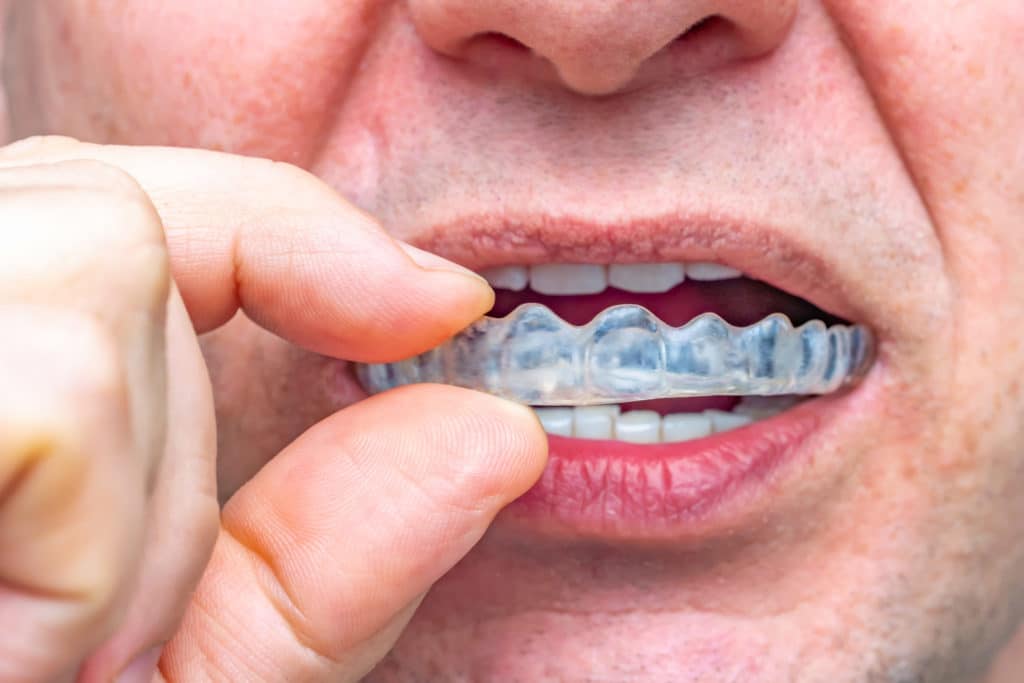Teeth grinding is causing far-reaching damage to Health
Many people grind their teeth, this seemingly harmless behavior is quite far-reaching health consequences. In a new treatment guideline is now in the different forms of bruxism (teeth grinding), and the corresponding treatment approaches have been combined.
The German society for function diagnostics and therapy (DGFDT) and the German society for Dental, oral and maxillofacial surgery Association (DGZMK) worked together with 30 other professional societies, the first treatment guideline for the gnashing of teeth. The various forms of the complaint picture, the possible consequences, and treatment strategies are presented. “This is a summary of the current scientific knowledge on safe level is a milestone, and contributes to more safety in dealing with the frequent phenomenon of bruxism,” says the Press release of the DGZMK.

Different forms of bruxism
Bruxism is a common complaint, where the parties often are not aware of is that you crunch, for example, at night with the teeth. Only when symptoms show or you will be advised of your partner or your Partner to the fact, the bruxism awareness. This is caused by repeated activity of the masticatory muscles. “These activities can be rhythmic (phasic bruxism) or over a period of time last (tonic bruxism),” explain the scientific societies. Distinction as to whether the gnashing of teeth in the awake state (awake bruxism) or during sleep (sleep bruxism).
A fifth of the population affected
Overall, a fifth of the population in Germany is affected by bruxism, and this may already occur starting with the eruption of the teeth, but they are most common in the second to third decade of life. Subsequently, the dissemination time decreases as age increases again, the communication to the professional societies. Awake bruxism is more common in adults than sleep bruxism, and men and women were equally affected.
Consequences of teeth grinding
“The gnashing of teeth is not considered as a disease, but it can have serious consequences for the health of the teeth, masticatory muscles and temporomandibular joints,” explains Prof. Dr. Ingrid Peroz of the Charité – Universitätsmedizin Berlin and President of the German society for function diagnostics and therapy. For example, will be triggered by the Overloading of the teeth and the abrasion of tooth substance-an allergic reaction to hot, cold, sweet or acidic foods.
Muscle aches and pains
Also the masticatory muscles could respond to the repeated activities with muscle complaints, with the regions of the cheek and the temple were the most affected. Pain and morning muscle stiffness are possible consequences. Furthermore, the tension of the masticatory muscles could lead to the Overloading of the jaw joints, with symptoms such as pain in the jaw joints (e.g. during Chewing of hard foods, with more jaw opening or lateral movements of the mandible), temporomandibular joint sounds or blocked jaw joints.
Also protective effects
In addition to damage to the hard tooth substance or functional disorders in the masticatory system-teeth also has protective crunch sometimes, however, functions for the health, reports of the professional societies. The bruxism sleep-related breathing could counteract disturbances such as sleep apnea, where the muscle tension to keep the upper airway open. Also heartburn (gastroesophageal Reflux) will alleviate the gnashing of the teeth because the saliva production is stimulated, and this will reduce the acid effect.
Although the causes for the teeth are not grinding yet clearly established, but is suspected on the basis of the following factors to be related:
- faulty tooth contacts,
- emotional Stress,
- Anxiety disorders,
- Sleep disorders (e.g. insomnia),
- Reflux,
- Nicotine, alcohol, caffeine and drug consumption,
- Side effects of medications,
- genetic factors.
Causes of bruxism
While awake bruxism rather psychological factors such as emotional Stress are stressed, the sleep bruxism, rather than the Central nervous system disorder. Also a stress reducing function of bruxism will be discussed according to the scientific associations. Also occasionally carried out, be back muscle activity took a completely harmless behavior and, often, Sufferers of this muscle activity are not aware of.
Often Affected to seek medical help, because they are made of your family or your Partner, or your partner on crunching noises in their sleep or because they Wake up at night with clenched teeth. As typical signs of damage and wear are phenomena of the teeth, pain of the masticatory muscles and short-term difficulties in the mouth to call opening. In the course of a day occurring Hypersensitivity of the teeth of the complaint, additional image.
Diagnosis and treatment
In the context of the clinical examination of the masticatory muscles and an inventory of the damage caused to the tooth hard substance as well as an assessment of tooth wear degree of success initially. The treatment aims to protect the teeth from wear and tear, to reduce bruxism activity and relieve the pain. In addition to education and counseling are rails, behavior therapy and Biofeedback possible steps. Also, botulinum toxin injections (Botox injections) can be considered, according to the new treatment guidelines.
If dental treatment must be carried out due to the wear and tear of the teeth, “depends on the degree of wear and the number of affected teeth by the age of the patient, the abrasion speed and the type of the triggering factors”, stress the specialist societies. (fp)
